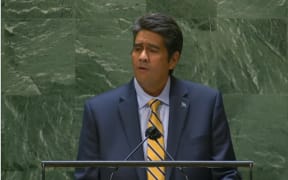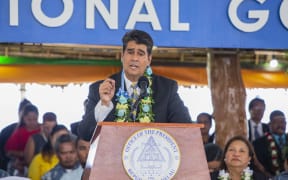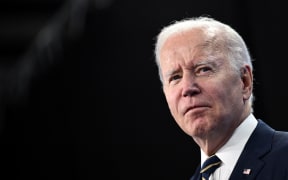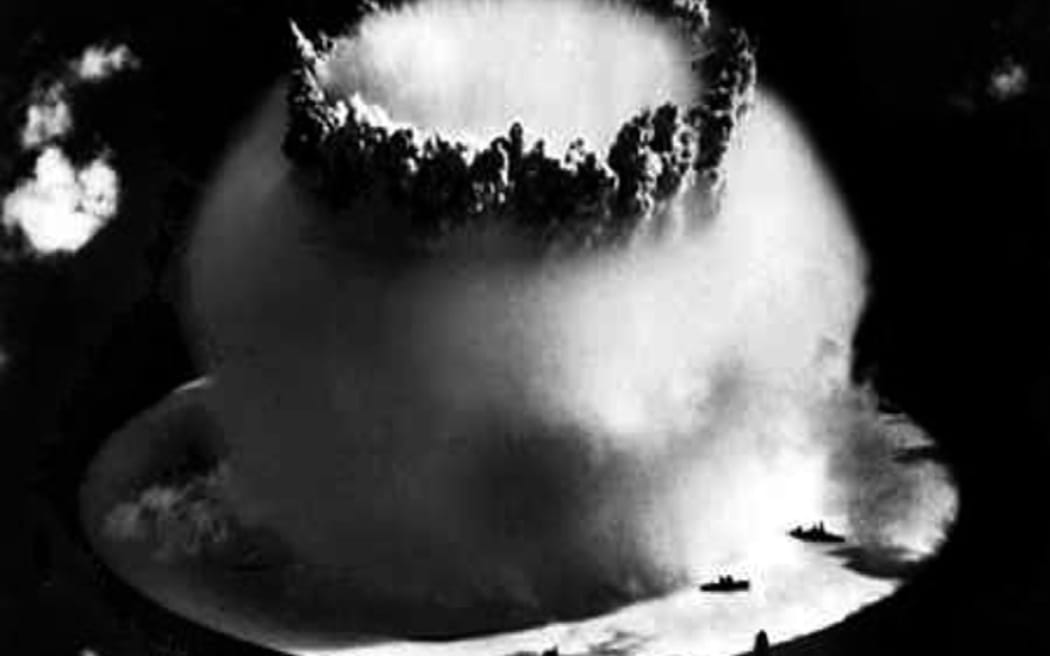
Photo: supplied
Marshall Islands' parliamentary speaker says a lack of agreement on the US nuclear legacy is holding up the country's Compact Review negotiations with Washington.
The Island Times reports the Marshall Islands Compact Review financial package is due on September 30, and the other non-fiscal negotiations will continue beyond that.
Kenneth Kedi told a media summit in Majuro the Marshall Islands Nuclear Negotiations Committee is meeting with the US, trying to conclude these negotiations as soon as possible.
The disagreements over nuclear legacy issues not being addressed by the US are holding up the Compact Review progress, he said.
"I call it nuclear injustice, not nuclear legacy," Kedi said.
Matters of contention holding up the negotiations include what Kedi said is the "refusal" of the US government to pay the $US3.2 billion compensation for the damages from nuclear bomb impacts.
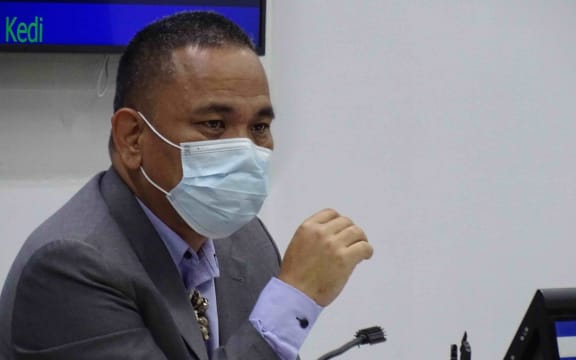
Kenneth Kedi Photo: Marshall Islands Journal
These impacts include displacement, land contamination, and medical costs, to compensate the Marshallese people affected by the 67 nuclear bombs detonated in the Marshall Islands.
"The $US150 million that the US paid under the initial Compact as compensation plus the yearly payments they made is simply not enough," he said of the initial compensation package under the Compact Agreement.
The Marshall Islands Compact of Free Association Agreement with the US called for a Nuclear Claims Tribunal to receive and adjudicate the claims of the Marshallese.
Nuclear legacy damages
According to Kedi, the experts the Marshall Islands brought to the Tribunal assessed the damages and submitted that the US pays the Marshallese $3.2b for the damages from the nuclear legacy.
He said the US brought in their own experts to dispute the amount submitted by the Marshalls' side and have not paid any part of the amount decided by the Tribunal.
"The United States has no better friend than the Marshallese," Kedi said citing examples of Marshallese support.
He said the impact of the 67 nuclear bombs detonated in the Marshall Islands destroyed and contaminated lands and made people sick.
"Cancer is the second leading cause of death in the Marshall Islands. People were removed from their islands, displaced, and will not be able to return to their lands due to nuclear contamination.
"Yet, the United States remains opposed to the Nuclear Tribunal's decision that the US pays the Marshallese people the determined cost of the damages," he said.
Earlier this year, more than 100 activist groups, including Greenpeace, Veterans for Peace, and the Arms Control Association signed a letter calling on US President Joe Biden to apologise for nuclear tests conducted in the Marshall Islands.
The letter urged Biden to deliver justice for those affected by the tests. And it said this should be done before the Compact of Free Association is signed.
The Federated States of Micronesia signed their agreements with Washington on the fiscal extension of the Compact on May 23.
Palau's Compact Review is due in 2024, but it signed the financial package of its Compact Review on the same day, in Papua New Guinea.
